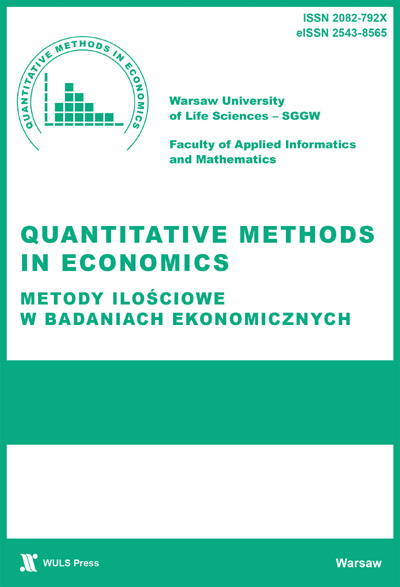EQUITY ISSUANCE AND CORPORATE DIVIDEND POLICY IN EMERGING ECONOMY CONTEXT
Main Article Content
Abstrakt
This article explores links between the size of a company, industrial sector in which a company operates, concentration of capital, size of business and emission and dividend policy in the Ukrainian corporate sector. Guided by insights from the bird-in-hand theory, clientele theory, signaling theory, and agency theory, we justify factors that determine the choice of shares’ placement by Ukrainian public joint stock companies and forming of their dividend policy related to the current operating conditions of the Ukrainian corporate sector. Using mathematical approach of tree classification construction in the form of random forest algorithm, we found out that maximization of the share capital value, that is involved in shares issuance of Ukrainian PJSCs, is not a priority for owners of corporate rights. 86.1 percent of companies have selected private placements of shares. In the nonfinancial sector, 87.5 per cent of companies opted private placements. The study revealed also only a small share (3.5%) of Ukrainian joint stock companies paid dividends to shareholders. However, the dividend policy of Ukrainian joint stock companies changed when they listed their shares on foreign stock markets. In this case two thirds of explored firms paid dividends.
Article Details
Jak cytować
Rohov, H., & Solesvik, M. Z. (2016). EQUITY ISSUANCE AND CORPORATE DIVIDEND POLICY IN EMERGING ECONOMY CONTEXT. Metody Ilościowe W Badaniach Ekonomicznych, 17(4), 114–137. Pobrano z https://qme.sggw.edu.pl/article/view/3890
Statystyki
Downloads
Download data is not yet available.
Rekomendowane teksty
Podobne artykuły
- Edmond Muhaxheri, Patrycja Szkudlarek, NORMALIZING CONSUMER SURPLUS DATA FOR KOSOVO’S WTP FOR A MANDATORY HEALTH INSURANCE , Metody Ilościowe w Badaniach Ekonomicznych: Tom 17 Nr 4 (2016)
Możesz również Rozpocznij zaawansowane wyszukiwanie podobieństw dla tego artykułu.
Licencja
Publikowane artykuły dostępne są na warunkach Open Access na zasadach licencji Creative Commons CC BY-NC – do celów niekomercyjnych udostępnione materiały mogą być kopiowane, drukowane i rozpowszechniane. Autorzy ponoszą opłatę za opublikowanie artykułu.

